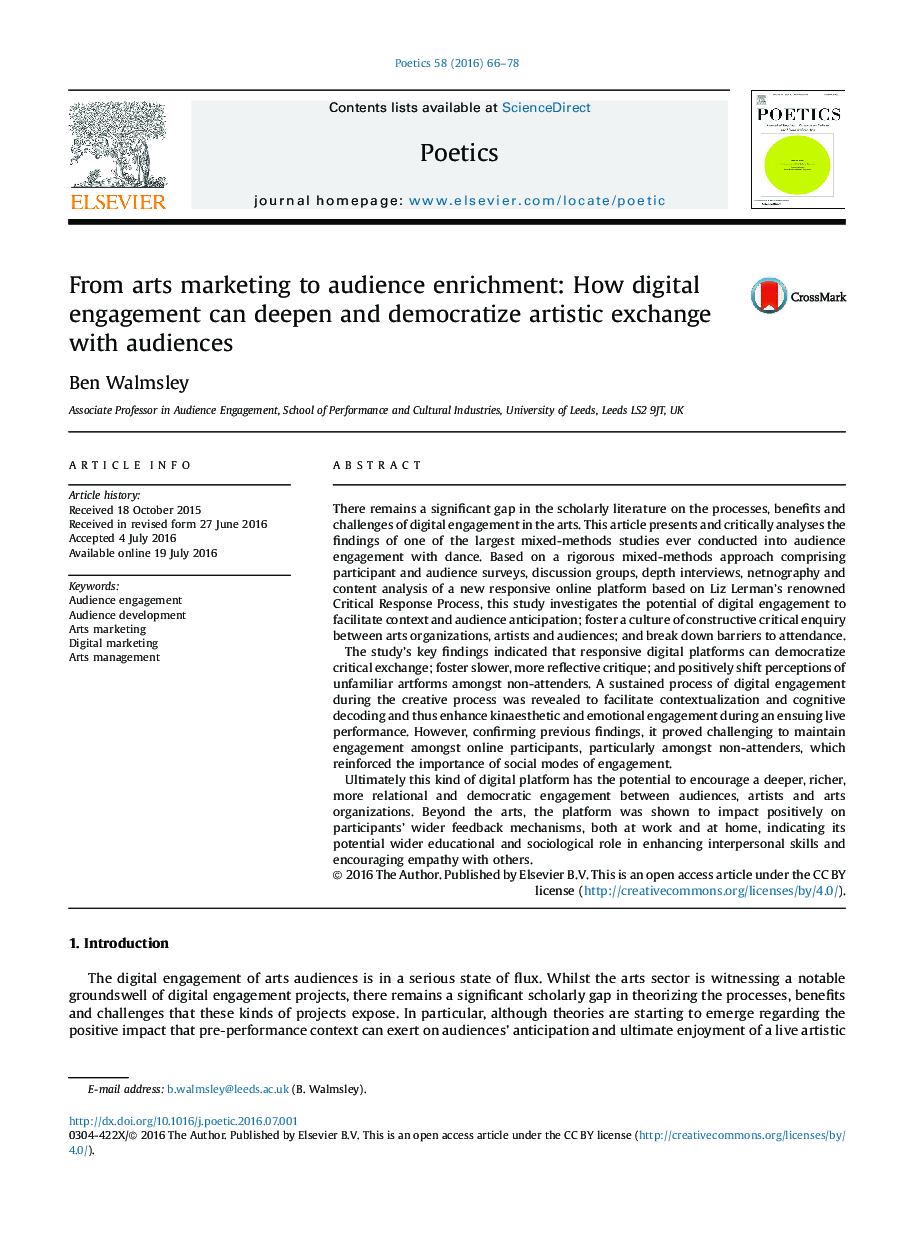| Article ID | Journal | Published Year | Pages | File Type |
|---|---|---|---|---|
| 5126747 | Poetics | 2016 | 13 Pages |
â¢Digital engagement can facilitate artistic contextualization; enhance audience anticipation; and develop new audiences.â¢Digital engagement with audiences can facilitate cognitive decoding and enhance kinaesthetic and emotional responses during an artistic event.â¢Digital platforms can encourage a slower, deeper, more relational and more democratic artistic engagement with audiences.â¢Digital platforms can encourage and facilitate slow, in-depth artistic critique.
There remains a significant gap in the scholarly literature on the processes, benefits and challenges of digital engagement in the arts. This article presents and critically analyses the findings of one of the largest mixed-methods studies ever conducted into audience engagement with dance. Based on a rigorous mixed-methods approach comprising participant and audience surveys, discussion groups, depth interviews, netnography and content analysis of a new responsive online platform based on Liz Lerman's renowned Critical Response Process, this study investigates the potential of digital engagement to facilitate context and audience anticipation; foster a culture of constructive critical enquiry between arts organizations, artists and audiences; and break down barriers to attendance.The study's key findings indicated that responsive digital platforms can democratize critical exchange; foster slower, more reflective critique; and positively shift perceptions of unfamiliar artforms amongst non-attenders. A sustained process of digital engagement during the creative process was revealed to facilitate contextualization and cognitive decoding and thus enhance kinaesthetic and emotional engagement during an ensuing live performance. However, confirming previous findings, it proved challenging to maintain engagement amongst online participants, particularly amongst non-attenders, which reinforced the importance of social modes of engagement.Ultimately this kind of digital platform has the potential to encourage a deeper, richer, more relational and democratic engagement between audiences, artists and arts organizations. Beyond the arts, the platform was shown to impact positively on participants' wider feedback mechanisms, both at work and at home, indicating its potential wider educational and sociological role in enhancing interpersonal skills and encouraging empathy with others.
